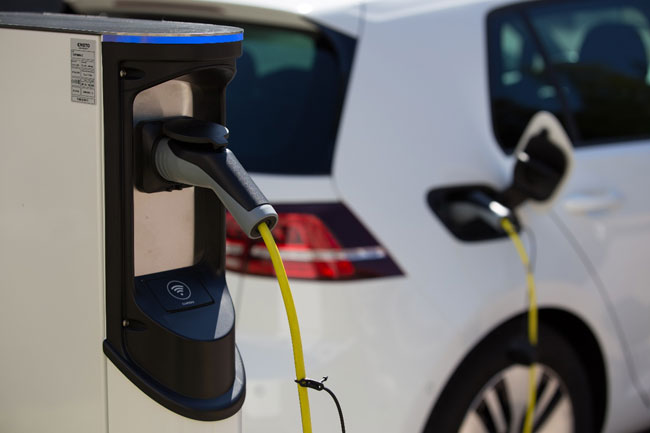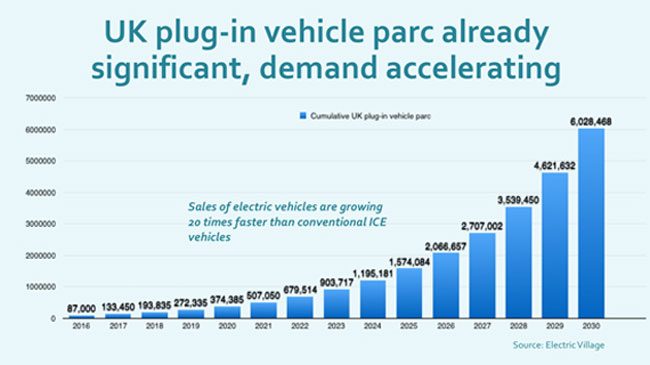A range of smart electric vehicle chargepoints from Ensto Chago, that can communicate with each other through cloud software to share available power between vehicles plugged-in at the same location, has been approved by the UK Government for grant support by OLEV (Office for Low Emission Vehicles).

Chago charging units limit the need for electricity supply grid upgrades, as electric vehicles increase in popularity. They also pave the way for vehicles to store energy and feed it back to the grid in times of peak demand. This potential for balancing energy use with electric vehicles is an important part of the UK’s emissions reduction strategy.
Lightening the impact that electric vehicle charging has on existing supply infrastructure also reduces the cost of installations, encouraging much needed uptake around buildings, car parks, offices, retail and public spaces.

James O’Neill, Ensto Chago UK Director says: ‘We are delighted to receive accreditation from the Government here. Our focus now is to work with businesses, city planners, architects and local authorities to deliver sustainable and economic charging solutions to ultra low emission transport’.
Chago chargepoints are now approved under Britain’s Workplace Charging Scheme (WCS), providing companies with up to £6000 towards costs, and their Electric Vehicle Homecharge Scheme (EVHS), which provides private individuals with up to £500. The schemes were introduced by the British Government to encourage adoption of plug-in vehicles, as part of a range of funding measures budgeted through to 2020.
There are around 90,000 plug-in vehicles on UK roads today. However the annual rate of sales is more than 20 times greater than conventional vehicles, meaning that a UK car parc of one million electric vehicles could be realised within six years.
Charging infrastructure that locally balances energy loads between vehicles is significant because it reduces overall peak demands on the national grid network, as electric vehicles approach mass adoption. Ensto Chago claims to be pioneers in the essential cloud-based load balancing technology that achieves this outcome.

